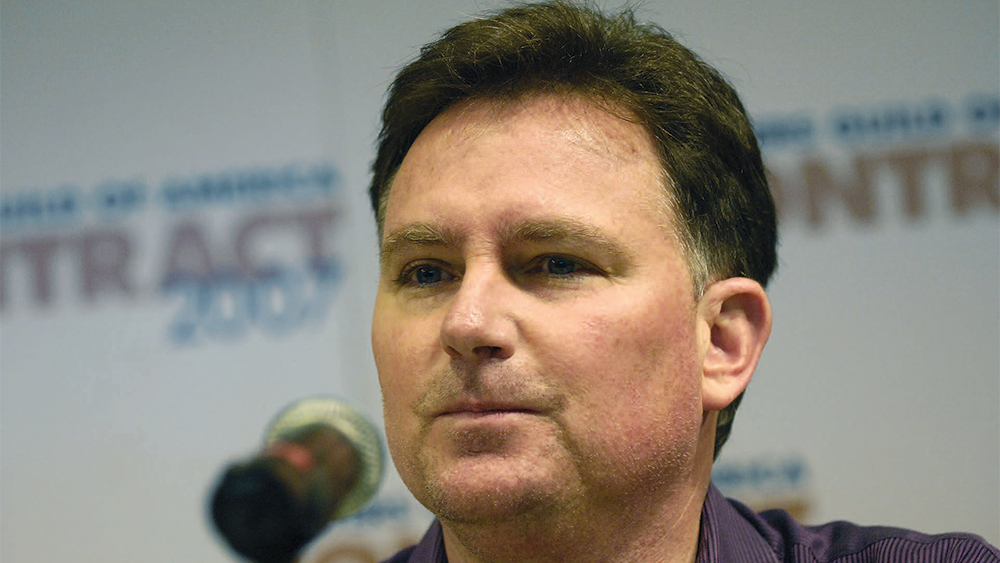Studios Wrestle With Dual Guild Talks and Plans for Reopening Hollywood
By Dave McNary
LOS ANGELES (Variety.com) – Baseball season may have been delayed this year by the coronavirus, but Hollywood’s major studios are about to play a doubleheader.
SAG-AFTRA and the Writers Guild of America are simultaneously launching into master TV and film contract negotiations with the Alliance of Motion Picture and Television Producers.
The actors guild negotiations, which formally began April 27, are getting underway as studio chiefs keep a wary eye on the WGA, which is expected to submit its contract proposals to the AMPTP on May 1 and begin negotiations on May 11. That timetable by definition puts a stopwatch on SAG-AFTRA talks, although sources close to the AMPTP insist the organization has the bandwidth to conduct parallel talks with both unions if need be.
Rising tensions between the WGA and the AMPTP about the timing of its negotiations allowed SAG-AFTRA to elbow past the WGA for the first time in years in the triennial queue that unions form to negotiate three-year master contracts. The DGA, as ever, was the first up, concluding its talks just days before pandemic-related shutdowns began to cripple the global economy in mid-March.
Unfortunately for the performers guild, SAG-AFTRA jumped the line at a time when the entertainment economy has been walloped by pandemic shutdowns. Negotiations will be held virtually, via videoconference calls, for the first time ever. SAG-AFTRA is faced with wrangling a deal in a setting that doesn’t lend itself to the kind of let’s-take-a-walk interactions that often lead to breakthroughs.
Moreover, SAG-AFTRA talks are coming at a time when the leaders of AMPTP member companies are consumed with planning for the gradual reopening of Hollywood, from office towers to location shoots. Some are hoping that process will be addressed in an industrywide way through the forum of the AMPTP, which is composed of Hollywood’s largest employers. A spokesman for the AMPTP declined to comment.
The WGA is seen as a volatile player this time around in part because so many of its members have already been mobilized in the guild’s separate battle over packaging fees with the town’s largest talent agencies, WME, CAA and UTA. (In a setback to the guild, on April 27 a federal judge dismissed most of the WGA’s lawsuit against the agencies, including claims that packaging fees amount to illegal kickbacks and are a form of racketeering.)
SAG-AFTRA and the WGA had hoped to make gains in this contract negotiating cycle on digital residuals and on adjusted TV series compensation formulas that are out of step with the way production works now. Actors have faced some of the same issues as writers in dealing with what is known in contract jargon as “span” — namely, the expectation that talent can be contractually bound for longer than usual time frames for shows that may produce only 6-12 episodes per season. That has created a cash flow problem for actors and writers who are paid by the episode and traditionally work on 22 or more episodes per season.
But with the economy reeling and Hollywood on the ropes, there’s little doubt that the AMPTP firmly has the upper hand. The conventional wisdom emerging in the creative community is that with more than 26 million Americans out of work, the threat of a strike, while already slim for SAG-AFTRA, is effectively disabled for the WGA as well. “There is no way” the WGA would generate broad-based support for a work stoppage in this moment, says a veteran showrunner and active guild member.
The WGA’s frustrations boiled over in public last week when David Young, WGA West executive director, asked the AMPTP in a letter to extend health care eligibility for guild members through the end of the year. AMPTP president Carol Lombardini said in the letter to Young that she would need to conduct discussions among studio reps, to which Young responded, “There will be an agreement when both sides agree there’s one. You people are despicable.”
Labor insiders were stunned, noting that Young’s ask was far greater than what was provided by DGA and SAG-AFTRA members. Observers said the WGA’s condition on holding negotiations with a demand outside the scope of the contract could be grounds for filing an unfair labor practice grievance with the federal government.
Against this backdrop, some industry sources expect the studios to try to get a WGA deal in hand before Hollywood begins to reopen for business in any significant way. The WGA and SAG-AFTRA both face June 30 contract expiration dates. But sources also voiced some skepticism that the WGA and the AMPTP would be able to stick to the May 1 timetable for exchanging proposals.
“You don’t think [the studios] are going to get production back up just to have David Young try to shut it down again,” says a senior talent agency executive who has been closely watching the WGA.

